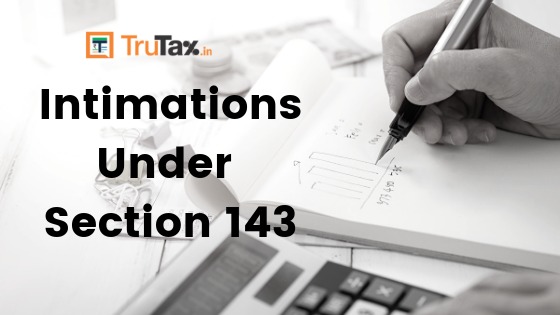
As per the Government norms, in India, it is mandatory for all individuals who have a specified amount of annual income to file for an Income Tax Return and within a specified time limit.
Income Tax Return is a form or a collection of forms that aids a taxpayer in reporting his gross taxable income obtained from various sources, his deductions and the net tax liability.
Income Tax Returns should be filed by salaried individuals, self-employed individuals, companies, firms, Hindu Undivided Families and a few more categories. Filing for Income Tax returns can be done online by visiting the website of the Income Tax Department. This process of filing Income Tax Return is known as e-filing.
Now, after the taxpayer completes the e-filing process, it is the job of the Income Tax Department to process the Income Tax Return request. During the processing of the request, there might be cases where the Income Tax Department might find certain discrepancies in data, errors in calculations, wrong entry of certain data, etc. In such cases, the ITD will issue a notice which is known as Intimation Order.
When can someone receive Intimation?
After filing for Income Tax Return, there are possibilities where an individual may end up receiving an Intimation order from the Income Tax Department. The following are the five major reasons when someone may receive and ITR.
Discrepancies in Return Filing –
This situation may occur when there is a discrepancy in the amounts declared by an individual and the records available with the Income Tax Department.
TDS Error –
Tax Deducted at Source (TDS) amount error is the most common type of error occurring with Income Tax Returns. It may happen that many times, your employer has made a wrong deduction from your salary for the purpose of TDS. This will result in the employee receiving intimation from the ITD.
Document Review –
There are many cases in which the Income Tax Department will wish to have a review of the documents based on which a taxpayer has filed his Income Tax Returns. Under these circumstances, ITD may send an intimation. And the taxpayer must respond to the intimation with the necessary documents as soon as possible.
Declaration of investments made in the name of spouse
Many individuals choose to purchase valuable assets under the name of their spouse or close relatives. This practice is usually done to avoid taxation but, these assets belong to the individual itself and he/she must declare the asset while filing for returns. The ITD will inform such individuals by intimations.
Random Scrutiny –
There are times when the ITD send intimations to the taxpayer for random scrutiny of the data and records provided during income tax filing. It becomes the responsibility of the taxpayer to cooperate with the ITD and provide the necessary data.
—————————————————
These are just a few cases, there are a lot of sections and each section has a specific purpose.
Nevertheless, the individual must cooperate with the Income Tax Department under all circumstances.
